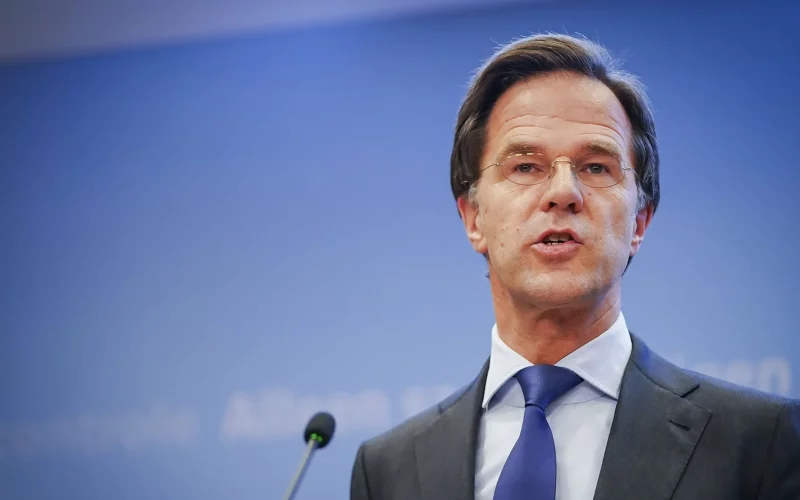Dutch Prime Minister Mark Rutte has submitted his government’s written resignation to King Willem-Alexander, who interrupted his holiday to receive it.
Rutte’s fourth government was a fragile coalition consisting of his People’s Party for Freedom and Democracy (VVD), the liberal democratic Democrats 66, the Christian Democratic Appeal (CDA), and the centrist ChristenUnie. It took 10 months to form the coalition, which lasted less than 18 months.
The coalition, with its radically different perspectives, collapsed primarily due to disagreements over immigration. Amid concerns about a housing crisis, high gas prices, and inflation, some individuals sought to blame foreign migrants, including international students, wealthier expats, and asylum seekers.
“It’s no secret that the coalition parties think very differently about asylum policy and today we unfortunately need to draw the conclusion that the differences are unbridgeable,” said Rutte in a press conference on Friday night. “The fall of a government is never good. But it is sometimes impossible in a coalition country like the Netherlands to come to one agreement.”
Although the number of asylum seekers in 2023 is expected to be similar to that of 2022, around 45,000, Rutte and the CDA reportedly advocated for stricter measures in a new bill that would limit the rights of family members to join refugees from countries temporarily affected by war. Democrats 66 and particularly the ChristenUnie disagreed, leading to the breakdown of cabinet talks on Friday.
However, the government’s resignation is unlikely to resolve the pressing issues facing the Netherlands. Rutte highlighted several problems in his resignation press conference, including housing for asylum seekers, the popular farmer’s resistance to EU-led nitrogen emissions targets, support for earthquake victims in Groningen, and a government childcare benefits scandal. Rutte emphasized that the country is waiting for solutions rather than delays.
In May, the European Commission approved a plan put forward by the Dutch government to buy out thousands of farmers in order to meet the EU’s Natura 2000 goals to allegedly protect the environment.
The scheme would offer farmers 120% of the value of their farms and could see around 3,000 “high-emission” farms shut down. The Dutch government also has a proposal to give dairy, pig, and poultry farmers a deal for 100% of the value of their farms should they choose to shut down.
The EU’s Natura 2000 plan is aimed at cutting nitrogen emissions, but it could have a significant impact on the Dutch farming industry, one of the most productive in Europe. The government hoped to set aside 1.4 billion euros for the farm shutdown schemes.
That appears to be put on hold for now. Nevertheless, the lack of a government will not be quickly resolved. Elections are expected in November, followed by another period of coalition formation in the fragmented, multiparty system. In the meantime, Rutte’s government will act as a caretaker and have limited decision-making power.
While Rutte stated that no single party triggered the collapse, some critics blamed him, suggesting that pressure from his party to adopt a tougher stance on asylum policy led him to issue an ultimatum. Jan Paternotte, the chairperson of the D66 liberal democratic party, mentioned that Rutte presented additional demands during negotiations, particularly concerning the children of refugees. He remarked that Rutte, who was known for seeking solutions rather than resorting to ultimatums, changed his approach.
An opinion poll conducted for the current affairs program EenVandaag, which surveyed 18,000 individuals, found that almost three-quarters of respondents considered it “unacceptable” for Rutte to return as prime minister, and 83% believed that his fourth administration had performed poorly.
Some groups celebrated the government’s collapse. Geert Wilders, the leader of the right-leaning Party for Freedom, began his campaign, while Caroline van der Plas, the leader of the populist Farmer-Citizen Movement, which unexpectedly achieved significant victories in regional elections in March and now holds significant influence in the Senate, tweeted that their flags were already flying.

